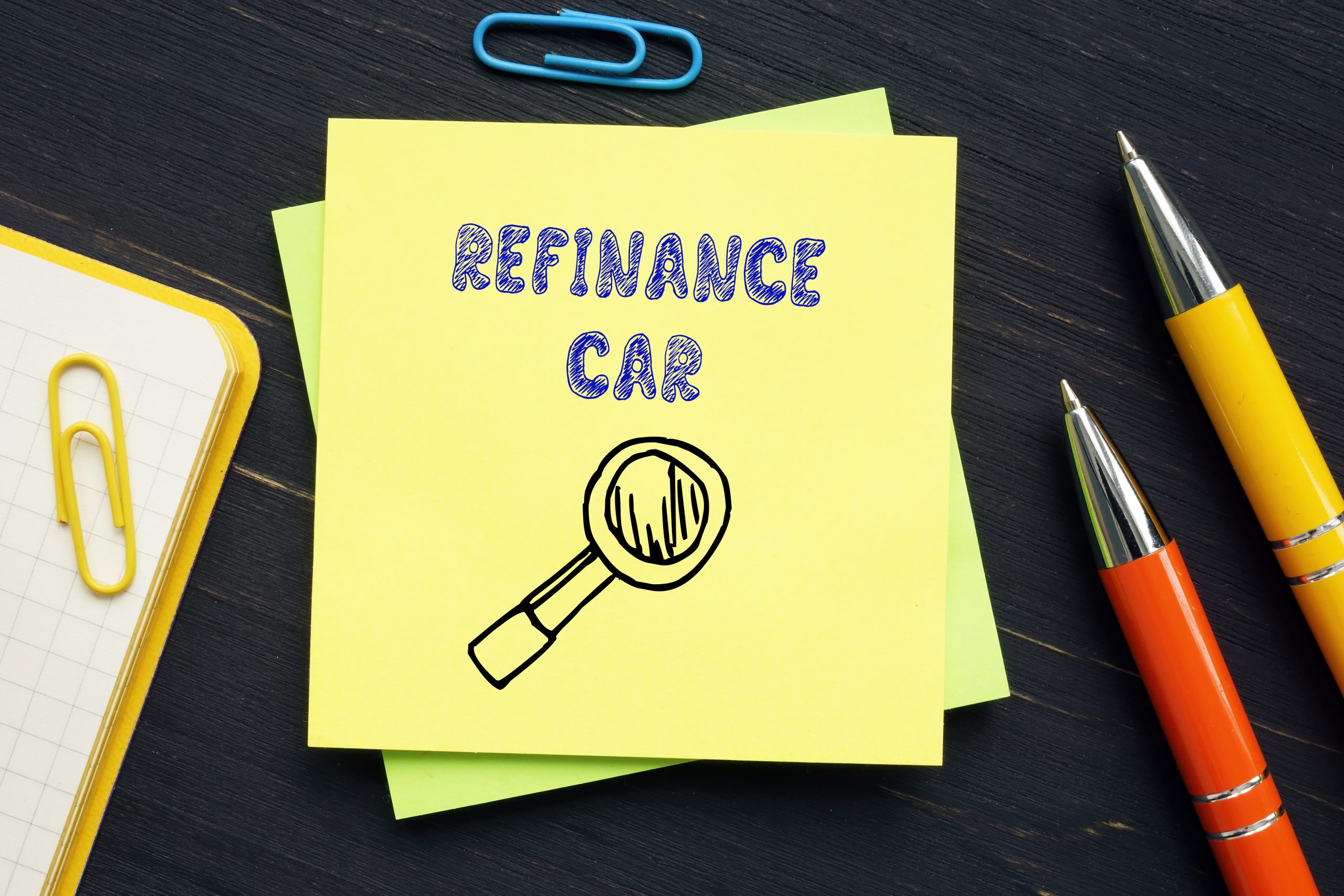Finances
A Guide to Mortgage Forbearance: what it is and how it can help
What is mortgage forbearance? When is it a good idea? If paying your mortgage has become a burden, read this and learn!
Advertisement
An inside look at mortgage forbearance and how it can help you

If you’re struggling to make your mortgage payments, you may have heard of “mortgage forbearance.” But what is it, and how does it work?

11 things to do before applying for a mortgage
Getting money to buy a house is a big commitment. Make sure you're fully prepared by ticking off the things you need to do before applying for a mortgage. Read on!
We’ll examine its benefits and risks and when you should consider using it. Read on!
You will be redirected to another website
You’ll receive messages for less than 1 week, with a maximum of 1 message per day. You can unsubscribe anytime by replying STOP. By submitting this form, I confirm that I am 18+ years old and agree to the Privacy Policy and Terms and Conditions. I also provide my signature, giving express consent to receive informational messages via automated emails, SMS, MMS text messages, and other forms of communication. Message frequency may vary as part of our good-faith effort to respond to your inquiry. Message and data rates may apply. Text STOP to cancel. I understand that my consent to receive communications is not a condition of purchase and that I may revoke my consent at any time.
Advertisement
What is mortgage forbearance and how does it work?
Are you feeling the financial pressure caused by Covid-19? Mortgage forbearance can provide much-needed relief.
This agreement temporarily pauses your loan payments, usually three to six months, for a predetermined time.
So, it is an important tool if you’ve lost your job or are dealing with illness due to Coronavirus impacts.
Your lender will work out any details about this arrangement to best suit both parties – but keep in mind that repayment is required at the end of the forbearance period.
It’s important to note that while your payments are suspended, interest will continue to accrue on your loan.
Benefits
- It allows you to stop making payments on your mortgage temporarily;
- Mortgage forbearance can help you if you’re experiencing financial hardship, such as a job loss or medical emergency;
- It can help you avoid foreclosure.
Advertisement
Risks
- If you miss payments during the forbearance period, this could damage your credit score;
- Missed payments at the end of the forbearance period could lead to foreclosure;
- If you have private mortgage insurance (PMI), missing payments could cause your insurance company to cancel your coverage.
When should you use mortgage forbearance?

If you’re struggling to make ends meet, mortgage forbearance can be a helpful way to stay in your home while you get back on your feet.
However, it’s important to remember that this is a temporary solution—not a way to avoid making payments indefinitely.
You should only consider using forbearance if you’re confident you can make up the missed payments once the forbearance period is over.
However, if you’re unsure whether it is right for you, we encourage you to speak with your lender about your options.
They can help you decide whether or not forbearance is right for your situation.
Advertisement
Does a mortgage forbearance impact your credit score?
Forbearance itself will not impact your credit score.
However, missing any payments during the forbearance period will show up on your credit report and could lower your score.
So, ensure your payments are on time to avoid credit score problems.
What happens at the end of the mortgage forbearance period?
You’ll need to resume making regular mortgage payments at the end of the forbearance period.
If you’re still facing financial hardship, you may be able to modify your loan.
You can also refinance your loan to get a lower interest rate or extend the term to have more time to pay it off.

Choose the best mortgage for your finances
Your choice of mortgage affects the quality of your financial life. Here's how to choose one that fits you and know what questions to ask a lender.
How to request a mortgage forbearance?
To request forbearance, you must reach out to your servicer and ask for it. Here’s what you need to know about how to request a mortgage forbearance.
1. Contact your mortgage servicer
The first step in the process is reaching out to your mortgage servicer. You can contact them by phone using the number on your contract. That’s the safest way.
Provide information about your current financial situation so they can understand why you request a forbearance.
2. Ask for forbearance
The next step is asking for forbearance specifically.
Be sure that the representative you are talking with understands that this is what you seek.
Forbearance on your mortgage payment, not a loan modification or any other assistance.
Then they can provide the correct information and guidance regarding the process.
3. Ask questions
You may have questions about the process of requesting it, so be prepared with these questions before contacting your servicer.
Common questions include:
- What type of loan do I have?
- What kind of relief am I eligible for?
- Is there a fee associated with my request?
- Are there any other options available?
It’s important to get all of this information before proceeding further in the process.
This way, you clearly understand what is required from both parties when requesting a forbearance on your payments.
What to do if your application for mortgage forbearance is denied?

There are many possible reasons why your mortgage forbearance application may be denied.
The most common reason is that you do not meet the lender’s “financial hardship” or “hardship status” criteria to qualify for forbearance.
The lender does not believe you have a reasonable chance of getting back on track with your mortgage payments within a reasonable time frame.
Other reasons could include a lack of documentation or incomplete information provided on the application.
What to do next
If your mortgage forbearance application is denied, don’t give up; options are still available.
First, review the denial letter carefully and ensure you understand why it was denied so you can address those issues in future applications.
It may also be worth contacting an experienced real estate lawyer who can review the situation and advise you on how best to get approved.
Another option is to look into other types of loan modifications, such as:
- Principal reduction;
- Loan extensions;
- Interest rate reductions.
Bottom line
After reading this post, you know that mortgage forbearance allows homeowners to stay home during financial hardships.
So, if you ever struggle to make payments, you have options.
Do you want to learn more about mortgages? Stay with us, and don’t miss our post below!

A guide on how to manage your mortgage
Managing your mortgage can be intimidating. Don't worry! We have some tips to help you learn how to easily manage your mortgage.
Trending Topics

How to buy cheap flights on Momondo
Discover how to buy cheap flights on Momondo and save money while booking daily. Night flights from $100! Keep reading and learn more!
Keep Reading
U.S. Bank Smartly™ Checking application: how does it work?
Looking to apply for U.S. Bank Smartly™ Checking? Let us guide you through the process and make banking easier than ever before.
Keep Reading
Refinancing a car: learn the pros and cons
Are you wondering what are the pros and cons of refinancing a car? Wonder no longer! Read our full article and learn more!
Keep ReadingYou may also like

Destiny Mastercard® Review: No Security Deposit, Just Credit Growth
Destiny Mastercard® offers a path to improve your credit score. Learn more about fees, benefits, and how it works!
Keep Reading
123 Money Loans Review: Payday Loans for All Credit Scores
Explore the pros and cons of 123 Money Loans in our review. From quick cash to potential pitfalls, make an informed decision!
Keep Reading
What credit score do you start with?
Want to know what credit score you start with when opening a new account? Here's all you need to know about.
Keep Reading